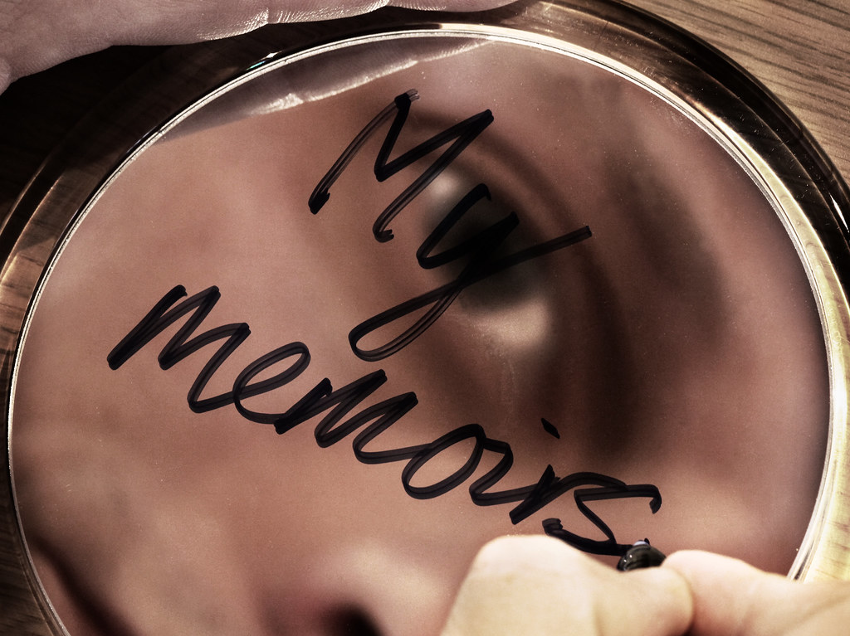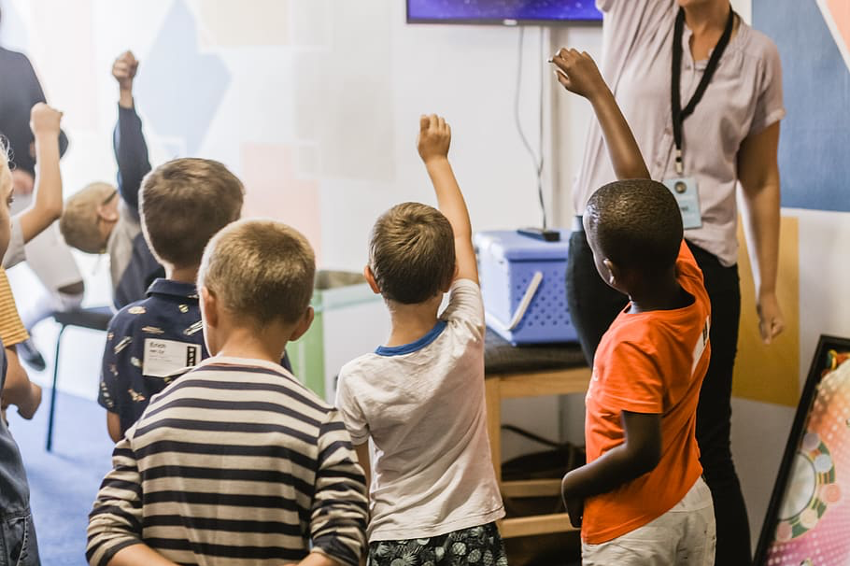How does a teachers own memory of schooling shape their current understanding of good and bad teaching?
Our understanding of what constitutes ‘good’ and ‘bad’ teaching is highly influenced by our time in school and specifically by our past teachers. For that reason, many teacher education programmes require student teachers to reflect on their time in school, encouraging them to explore how their past schooling experiences influence their current beliefs about teaching. Recalling our past experiences is, however, not a straightforward exercise.
In cognitive psychology, autobiographical memory is a term used to refer to the store of memories related to our past experiences. These memories hold significance for the individual as they often contain key moments in one’s life. As a result, autobiographical memory tends to contain memories of successes, achievements, failures and challenges that are used to construct a picture of the autobiographical self. These memories are therefore a critical aspect of our personal identity.

Being central to one’s identity, these memories are often memories that help to explain decisions or past experiences. For example, they are likely to contain ‘self-defining moments’ and ‘turning points’ which contain key knowledge on the progress of achieving personal goals and maintained to justify or explain life changes such as career decisions or successes.
Teachers remembering being taught
Student teachers’ autobiographies of schooling can therefore be quite selective, based on what was deemed important to the individual at the time of the experience. Therefore, while student teachers will have been exposed to many different teachers in their past, only those that were deemed important and had relevance at that time of the experience will be remembered. In addition, these highly selected memories are not static but rather they undergo a constant level of ‘maintenance’ – being modified and edited based on the individual’s developing life story.
Hence what the student teacher now recalls about their schooling experience, and specifically about ‘good’ and ‘bad’ teachers, is not only influenced by what they initially perceived as ‘good’ and ‘bad’ teaching at the time of encoding, it will also be influenced by their emerging understandings of teaching and learning acquired in subsequent years. Recalled memories of schools and past teachers may therefore be shaped by societal norms of what constitutes a ‘good’ or ‘bad’ teacher.
Research that has explored pre-service teachers’ recounting of this biographical history have shown that past teachers are normally presented in a polarised manner, being described as very ‘good’ or very ‘bad’. Research has also found that positive teachers tend to have a long-lasting impact on students’ memories and that the positive strategies used by these teachers, and their personal qualities, are also remembered.
To further explore how student teachers recall their past teachers, my colleague, Dr Guillermina Gavaldon, and I conducted a research study which aimed to explore how past teachers were recalled by pre-service student teachers. Our study collated the written diaries of pre-service teacher education students on a teacher education programme in a Spanish University. The task in question asked the pre-service teachers to write an account of their time in education, ranging from their earliest memories of school to more recent memories before entering University. We did not specifically ask them to recall teachers, as part of our interest was if teachers were among what was recalled. A total of 60 students were enrolled in the programme and from this, a random sample of eighteen student submissions were selected and subsequently analysed. Once collated, the references to past teachers underwent a thematic analysis to identify the main themes emerging across all the diaries.
How our own teachers are remembered
Our analysis found that descriptions of ‘good’ teachers appeared to draw heavily on broader societal norms in relation to what are ‘good’ teachers. The student teachers’ accounts tended to focus on teachers’ personal traits (kindness, patience etc.), their ability to control students, their subject knowledge and their ability to motivate students. Bad teachers, on the other hand, were presented as having poor content knowledge, having negative personality traits or an inability to control a class group.
In our analysis of their memories of teachers, it became apparent that their descriptions differed in two significant ways. Some appeared to draw on very specific memories that appeared to be strongly linked to the time of encoding whilst other memories appeared to have be subsequently re-worked in some way. By way of an example, one student teacher recalled a teacher that appeared to show aggression which frightened her as a child, ‘when he got angry, he was very aggressive. He used to hit the table and I remember being horrified’. These types of recollections were quite ‘primal’ as the student teacher is almost taken back to the specific event (i.e. the time of encoding) and recalled the event as they experienced it at the time. Recollections of the specific teacher’s actions, ‘he used to hit the table’ and the student teacher’s own emotional state, ‘being horrified’ would suggest that this memory had not undergone any subsequent revision.
On the other hand, other recalled memories of past teachers were re-framed through subsequent experience. For example, in recalling a past teacher, one participant wrote;
Undoubtedly, today, I could say that she [the teacher] is the one I am drawing from the most. Very often I realize that concepts given in the university were implicitly seen in their classes (collaborative and cooperative work – creating groups according to our capacities or our interests), the Universal Design for Learning principle …
In using phrases such as ‘in those days’ and ‘I didn’t realise’ there is evidence that the student teachers are re-working their memories of teachers through more recently acquired understanding of educational theory.

Having identified these two types of teacher memories we proposed a tentative theoretical model incorporating two types of recalled memories. We called these recycled teacher memories and upcycled teacher memories.
Recycled teacher memories are memories that tend to recall the event from the perspective of how the person experienced it. They often recall in detail the sounds, smells and feelings experienced at the time of the event. Unlike ‘up-cycled’ memories, the experiences recalled have not undergone any subsequent analysis from an educational/pedagogical/professional teacher standpoint. It is as if the experience is frozen at the time of encoding.
Up-cycled teacher memories on the other hand undergo a level of re-working influenced by educational or pedagogical insights gained from their teacher education programme. This re-working often sheds the original memory in a new light and moves beyond a descriptive recollection of the original experience. While recognising that no memories are recalled from a neutral space and other personal insights can indeed influence the recollection of events, a key differentiation of upcycled teacher memories is that they draw on educational/pedagogical insights, as opposed to other insights, to re-frame the recounted experience.
Implications for teacher education
We argue that viewing student teachers’ learner autobiographies through this lens of recycled and upcycled teacher memories may give an insight into the way in which they are reflecting on their past experiences and the extent to which they have taken ownership of the educational and pedagogical perspectives acquired in their teaching programmes. Further still, as memories of past events are often recounted in ways that help us make sense of our current situations, upcycled teacher memories help to highlight the student teacher’s sense-making. Recycled memories, on the other hand, having undergone little if any educational/pedagogical re-framing, might suggest that the student teacher is not critically reflecting on their experiences and failing to use the theoretical lenses of their teacher education programme to interrogate their past memories.
In addition, upcycled memories provide the student teacher with the opportunity to explore why they have re-worked their memories in the way they have. Upcycled teacher memories therefore provide greater scope for professional growth as they reflect the start of a professional conversation about the experience that can open a wide range of learning insights.
Finally, for practicing teachers, the study also highlights how we should reflect on our own recollections of past teachers and consider what these memories tell us about our own level of critical reflection on our past.
For further details of the study see: Oliver McGarr & Guillermina Gavaldon (2019): Recycled teacher memories and upcycled teacher memories: categorising pre-service teachers’ recollections of past teachers, Cambridge Journal of Education, DOI: 10.1080/0305764X.2019.1581136
[A .pdf version of this article can be downloaded here]
Authored by:

Oliver McGarr
Professor Oliver McGarr is based at the School of Education, University of Limerick
Leave a Reply